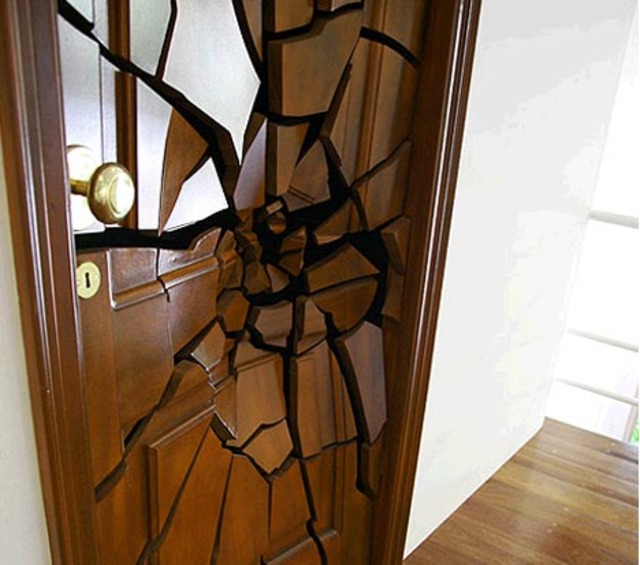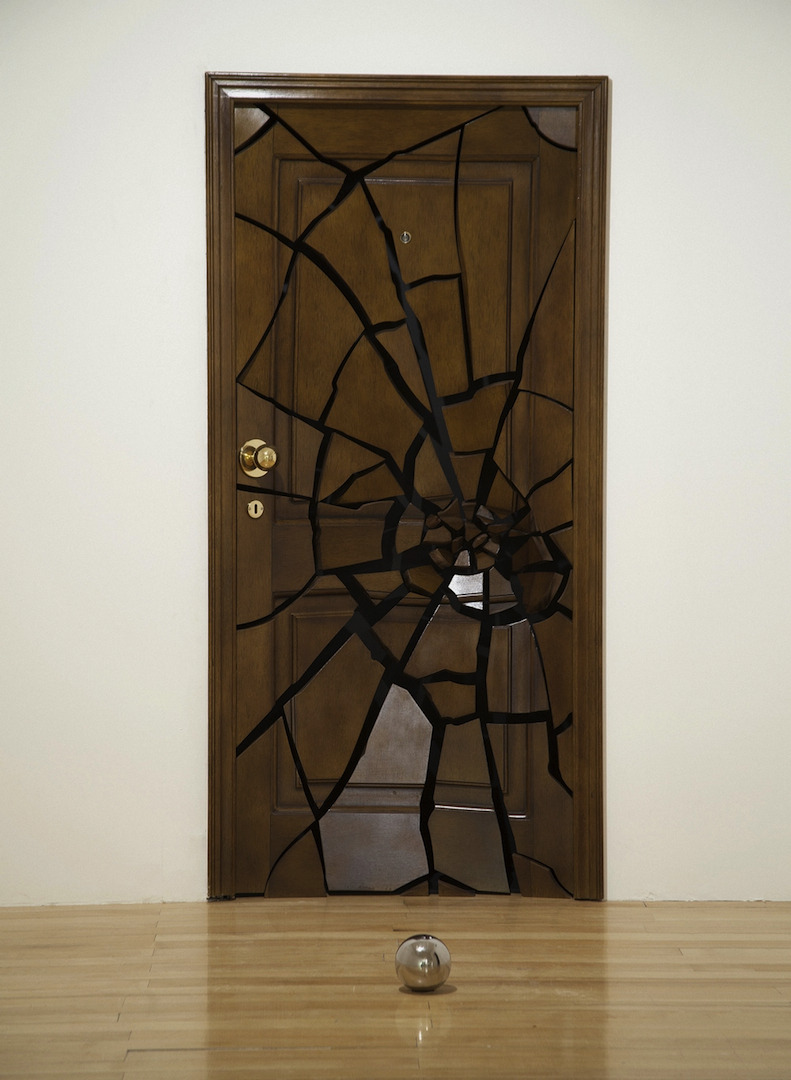Shattering Door Sculpture by Leandro Erlich

When is a door not a door? When it’s ajar … or perhaps when it is shattered like glass. This piece is all the more surreal for being situated in a minimalist modern white room in what could well be the interior of a conventional contemporary house. Though artists might recognize this unusual frame job as artwork, this is doubtless not what carpenters mean when they refer to rough framing a wooden door.
Puns and plays on words aside (or perhaps inside), artist Leandro Elrich has quite an elegant way of shattering our expectations (so to speak) in works like this one, where the properties of one material are experimentally applied to a familiar object made from another substance. The last thing a viewer expects is for an almost boringly ordinary door to crack and crumble like a sheet of glass.
Knobs away! What appears to be a large door knob rests on the floor in front of the broken shards (still sitting loosely in their frame). Other works by Elrich likewise take typical settings, household furnishings and home fixtures like windows, ladders and curtains and add twists that turn these common situations and objects into visually and conceptually challenging works of art.
Erlich is represented by Sean Kelly New York. Of the artist and his work, they write:
“Leandro Erlich was born in Buenos Aires, Argentina, in 1973. An architect of the uncertain, Erlich creates spaces with fluid and unstable boundaries. Before one tries to make sense of his sculptures and installations, one senses the uncanny. A single change (up is down, inside is out) can be enough to upset the seemingly normal situation, collapsing and exposing our reality as counterfeit. Through this transgression of limits, the artist undermines certain absolutes and the institutions that reinforce them.”
“Leandro Erlich draws inspiration from his literary Argentinian forebear, Jorge Luis Borges, but references to the world of film also appear frequently in his work; Erlich makes no secret of his admiration for directors like Alfred Hitchcock, Roman Polanski, Luis Buñuel and David Lynch, whom, he argues, ‘have used the everyday as a stage for creating a fictional world obtained through the psychological subversion of everyday spaces.'”






